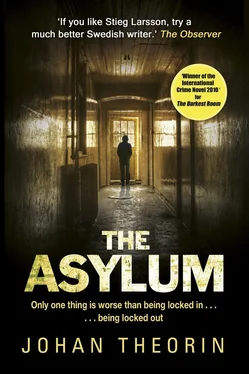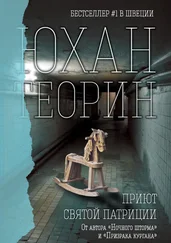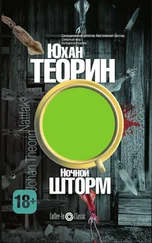Jan looked over at the desk. What Rami said might well be true, because the book that had been lying on the desk was gone.
‘She’s going to regret that,’ Rami said. ‘She and her family.’
Jan doesn’t recall ever having spoken to a neighbour, not in all the years he has lived in apartment blocks. He might have said hello if he met someone on the stairs, but he has never stopped to chat. To him a stairwell is not a meeting place, it is just a no-man’s-land where the only sound is the reverberating echo of doors closing.
But here in Valla there is one neighbour he has spoken to, and now he wants to see him again.
When he gets home after the evening with Hanna, he places Rami’s picture books on the kitchen table. He sleeps well that night.
He is still tired when he wakes up, but there are things he must do, and after breakfast he picks up an empty coffee cup and goes down two flights of stairs to the door that says V. LEGÉN on it, and rings the bell.
It takes almost a minute before the door opens. An aroma of pipe tobacco and alcohol reaches Jan’s nostrils as his grey-haired neighbour stares blankly at him, but he gives Legén a big smile.
‘Hello there,’ Jan says. ‘Me again, from upstairs... I’m baking another cake, and I wondered if you could possibly spare a bit more sugar?’
The neighbour seems to recognize him, but doesn’t bother to say hello. ‘Ordinary sugar?’
‘Any kind.’
Legén simply takes the cup and turns away; he doesn’t invite Jan into the dark hallway, but Jan steps inside anyway.
There is no sign of the bag from St Patricia’s that was lying on the floor last time; Jan follows Legén into the kitchen. There are plates piled high all over the place, little islands of bottles and cans on the floor, and the windows are covered in a grey film of dust and grease.
‘I work at St Patricia’s, by the way,’ he says to Legén’s back.
His neighbour doesn’t react at all; he simply carries on tipping sugar into the cup.
‘You used to work there too, didn’t you?’ Jan goes on.
There is no reply this time either, but he thinks he picks up a brief nod over by the worktop. So he tries again: ‘Did you work in the laundry?’
This time Legén definitely nods.
‘How long were you there?’
‘Twenty-eight years. And seven months.’
‘Wow. But you’ve retired now?’
‘Yes,’ Legén says. ‘Now I just make wine.’
Jan looks around. It’s true; that’s what the bottles and cans are for. The fruity, alcoholic aroma is coming from the containers, not from Legén.
‘But maybe you still remember how things looked up there... in the hospital?’ Jan says slowly.
‘Maybe.’
‘Any secret passageways?’ Jan says, smiling to show that this is a joke. Which it isn’t.
Legén stops pouring sugar and looks at Jan, who adds, ‘I’d really like to hear some of your stories, if you feel like talking.’
‘Why?’ asks Legén, picking up the cup of sugar.
‘Well, I work there... I’m just curious about the place. I’ve never been up to any of the wards.’
‘Oh?’ says Legén. ‘So where do you work, then?’
Unable to come up with a convincing lie, Jan replies, ‘At the pre-school.’
‘Pre-school? There is no pre-school.’
‘There is now. It’s for children whose parents are in St Patricia’s.’
Legén simply shakes his head in amazement; he considers Jan’s request for a moment, then hands over the cup of sugar. ‘OK... A hundred, in that case.’
‘A hundred what?’
‘A hundred kronor and I’ll tell you. You can try my wine as well.’
Jan thinks about it, then nods. ‘If you talk to me I’ll fetch the money afterwards.’
Legén sits down at the kitchen table; he doesn’t speak for a little while, but eventually he says, ‘There are no secret passageways. Or at least I’ve never seen one. But there is something else.’
He rummages among the newspapers and receipts covering the surface of the table, and finds a pencil and a torn piece of paper. He begins to draw squares and narrow rectangles.
‘What’s that?’ Jan asks.
‘The laundry.’ Legén draws an arrow. ‘You go to the drying room. There’s a big, wide door. But you don’t go through it, you use the door on the right, just here. That takes you into a storeroom’ — he draws a thick circle around one of the squares — ‘and in there, behind all the stuff, is the way up.’
‘A staircase?’
‘No. An old lift. It goes straight up to the wards... The whole place. But not many people know about it.’
Jan looks at the messy sketch. ‘But there are usually people in the laundry. And plenty of security guards.’
‘Not on Sundays,’ says Legén. ‘The laundry is empty on Sundays; you can operate the lift from inside, and go up and down as you wish.’
For the first time he meets Jan’s eye, and Jan gets the feeling that Legén is talking about himself. All of a sudden there is some kind of understanding between them. Twenty-eight years at St Psycho’s , Jan thinks. Plenty of time to learn about every square metre of the place, every door and every corridor.
And he must have met many of the patients. Seen them and thought about them.
‘Did you use the lift?’ Jan asks.
‘Now and again,’ Legén replies.
‘On Sundays?’
‘Now and again.’
‘You used to meet someone up there?’
Legén nods. He seems to be remembering those encounters. ‘A woman?’
Legén’s expression is mournful. ‘She was beautiful, really lovely... but she carried hell inside her.’
Jan doesn’t ask any more questions.
Lynx
The detective inspector had bright-green eyes that stared and stared and never looked away. She was sitting at Nina’s desk in the office and seemed completely at home, as if she were now in charge of Lynx. Jan was trying to appear equally relaxed — he was just one of the members of staff being interviewed by the police.
‘Did you see anyone else out in the forest?’
‘You mean... any other adults?’
‘Children or adults,’ said the officer. ‘Anyone who wasn’t part of your group.’
Jan pretended to think back. He could have come up with a shadow among the trees, a crouching male figure spying on the boys with greedy eyes, but he knew that the police were hunting for a kidnapper now, and he didn’t want to link himself to such a figure in any way. He shook his head. ‘I didn’t see anyone... but I did hear some noises.’
‘Noises?’
Jan hadn’t heard any noises, of course, but he had to carry on now he’d started: ‘Yes... creaking branches, as if something was moving about among the fir trees. But I thought it was an animal.’
‘What kind of animal?’
‘I don’t know... A deer, maybe. Or an elk.’
‘Something large, in other words?’
‘Exactly, a large animal... But not a predator.’
The inspector narrowed her eyes. ‘What do you mean by predator?’
‘Well... there are predators in the forest. You don’t see them very often, because they’re so timid, but there are bears and lynxes and wolves... or maybe not wolves, not this far south.’ Jan knew he had started to babble; he closed his mouth and gave a slightly strained smile.
The inspector didn’t ask any more questions. ‘Thank you very much,’ she said, writing something down in her notebook.
Jan stood up. ‘Will you be organizing another search party?’
‘Not just at the moment. The helicopter is going out, and there will be a number of specific targeted initiatives.’
‘I’d be happy to help,’ Jan said. ‘With... anything at all.’
Читать дальше












